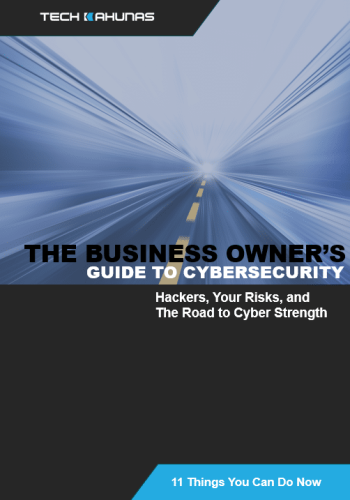Ensuring data security throughout the biotech product lifecycle involves addressing complex and evolving challenges from research inception to market delivery. Effective risk assessments and threat modeling are vital for anticipating cyber risks. Data encryption, particularly using AES and RSA, safeguards sensitive information. Stringent access control, leveraging multi-factor authentication and role-based access, minimizes unauthorized data exposure. Regular audits and compliance checks guarantee alignment with regulatory standards, while safeguarding intellectual property secures competitive advantages. Embedding a security-first culture, supported by leadership and thorough training, fortifies defenses against insider threats and cyber attacks. Explore further to understand best practices and cutting-edge approaches.
Key Takeaways
- Implement robust encryption techniques to protect data integrity and confidentiality from inception to market dissemination.
- Conduct regular security audits and risk assessments to address evolving threats throughout the product lifecycle.
- Enforce multi-factor authentication and strict access controls to restrict data access to authorized personnel.
- Ensure compliance with regulatory standards to maintain data integrity and secure intellectual property.
- Foster a security-first culture with continuous education and leadership involvement to mitigate potential data security threats.
Understanding Data Security Challenges
In the domain of biotech products, data security challenges are multifaceted and continuously evolving, posing significant risks to both organizations and consumers. The increasing complexity of biotech data and its storage necessitates robust cybersecurity awareness and strict compliance measures.
A primary concern is the data breach, which may result from insufficient risk assessment and inadequate threat modeling. Effective risk assessment processes must consider insider threats—employees with authorized access who might inadvertently or maliciously cause data loss.
Additionally, the integration of third-party vendors complicates security frameworks, as these external partnerships can introduce vulnerabilities that might be overlooked without thorough compliance audits.
The role of digital forensics is essential in post-incident response, helping organizations understand the breach's scope and origin to prevent future occurrences. Furthermore, continuous education in cybersecurity awareness is vital to equip personnel with the knowledge to recognize and mitigate potential threats.
Extensive compliance audits guarantee adherence to regulatory requirements, thereby minimizing risk exposure. A proactive incident response strategy, underpinned by detailed threat modeling, is critical for swiftly addressing breaches and preserving data integrity.
As the biotech industry grows, these elements collectively underscore the necessity for a dynamic and adaptive approach to data security.
Protecting Research and Development Data
How can biotech companies effectively safeguard their invaluable research and development (R&D) data in an era of heightened cyber threats? Ensuring data integrity is paramount, beginning with thorough risk assessments that identify potential vulnerabilities throughout the data lifecycle.
Companies must implement threat modeling to proactively anticipate and mitigate cyber risks. Regular security audits are essential to verify that protective measures are functioning as intended, adapting to evolving threats.
Collaboration tools, while enhancing productivity, can also introduce security risks. Hence, secure communication protocols must be enforced to prevent unauthorized data access.
Cloud storage solutions must be carefully selected to provide robust encryption and data protection features. An effective incident response plan is critical for swiftly addressing any breaches, minimizing potential damage.
Employee training is fundamental to maintaining a secure environment; employees must understand the importance of data security and be equipped with the knowledge to recognize and respond to threats.
Securing Clinical Trial Information
In the domain of securing clinical trial information, safeguarding patient privacy is paramount and requires robust data encryption techniques to guarantee that sensitive information remains confidential.
Implementing advanced encryption algorithms protects data both at rest and during transmission, reducing the risk of unauthorized access.
In addition, stringent access control measures must be established to regulate who can view and modify trial data, thereby maintaining data integrity and compliance with regulatory standards.
Protecting Patient Privacy
Ensuring the protection of patient privacy within clinical trials is a critical component of data security in the biotech sector. The foundation of this protection is built on robust consent management practices that emphasize patient consent as a dynamic and ongoing process.
Ethical considerations necessitate transparency initiatives that foster patient engagement, ensuring individuals are informed about data usage and privacy regulations. Data anonymization techniques are employed to safeguard personal information, minimizing the risk of exposure in case of a data breach.
A thorough risk assessment should be conducted to identify potential vulnerabilities and inform data breach response strategies. This proactive approach not only mitigates risks but also builds trust with stakeholders, including patients, regulatory bodies, and research institutions.
Privacy regulations, such as GDPR and HIPAA, provide a regulatory framework that guides the protection of patient information, mandating compliance to avoid severe penalties.
Stakeholder collaboration is essential for effective protection of patient privacy, facilitating the exchange of best practices and technological advancements.
Data Encryption Techniques
Building upon the foundational practices of protecting patient privacy, data encryption techniques serve as a vital component in securing clinical trial information. The integrity and confidentiality of sensitive data are paramount, given the proprietary and potentially life-altering nature of clinical trial results.
Encryption algorithms, consequently, play an essential role in safeguarding this data against unauthorized access and tampering. These algorithms transform readable data into an unreadable format, guaranteeing that only authorized parties with the correct decryption keys can access the original information.
Advanced encryption techniques such as Advanced Encryption Standard (AES) and RSA are employed to create robust security frameworks. AES, a symmetric encryption algorithm, is favored for its speed and efficiency, making it suitable for encrypting large datasets. Conversely, RSA, an asymmetric algorithm, provides enhanced security for transmitting encryption keys over potentially insecure channels, thereby fortifying data integrity during exchanges.
Incorporating these encryption algorithms into the data management lifecycle of clinical trials guarantees that information remains protected from inception through dissemination.
Access Control Measures
Effective access control mechanisms are vital in safeguarding clinical trial information against unauthorized access and manipulation. In the biotech sector, where data integrity and confidentiality are paramount, implementing robust user authentication strategies is essential. These strategies guarantee that only authorized personnel can access sensitive trial datasets, thereby protecting the data from potential breaches. Multi-factor authentication (MFA) is a preferred approach, often combining passwords with biometric verification or hardware tokens, thereby greatly enhancing security layers.
Role based access is another important component in securing clinical trial information. By assigning specific access rights based on the user's role within the organization, this method effectively limits data exposure to only those who need it to perform their duties. For instance, researchers may have access to blinded study data, while administrative staff might only access logistical details. This segregation minimizes the risk of data leaks and unauthorized data manipulation, thereby maintaining the integrity of the trial.
Furthermore, periodic audits of access logs are necessary to confirm compliance with access control policies. These audits can identify irregular access patterns and potential security threats, prompting timely corrective actions.
To summarize, integrating user authentication strategies and role based access is fundamental to an all-encompassing data security strategy in clinical trials.
Safeguarding Intellectual Property
How significant is the role of safeguarding intellectual property in the biotech industry? In this highly competitive field, protecting innovations through mechanisms like patent protection and trade secret management is paramount.
Patent protection guarantees that novel inventions, processes, and formulations are legally shielded from unauthorized use, providing companies a temporary monopoly to capitalize on their research investments. This legal framework is not just a formality but an essential element in preserving competitive advantage and encouraging continued investment in research and development.
Trade secrets, on the other hand, encompass proprietary methods and confidential business information that give companies a competitive edge without public disclosure. Safeguarding trade secrets involves implementing rigorous access control measures and making certain that confidential information remains secure throughout the product lifecycle.
This entails not only robust legal agreements with employees and partners but also stringent internal protocols to prevent data breaches and unauthorized disclosures.
The biotech industry thrives on innovation, making the protection of intellectual property a critical concern. Failure to adequately safeguard these assets can lead to significant financial losses, diminished competitive positioning, and erosion of consumer trust.
As a result, establishing extensive intellectual property protection strategies is indispensable for maintaining industry leadership and fostering sustainable growth.
Implementing Advanced Security Technologies
To what extent can advanced security technologies fortify the biotech industry's defenses against cyber threats? In an era where cyber threats are increasingly sophisticated, the integration of advanced security technologies is essential.
Biometric authentication stands out as an effective measure, providing a robust layer of security by utilizing unique biological characteristics such as fingerprints, voice recognition, or retinal scans. This technology reduces the risk of unauthorized access to sensitive data, ensuring that only verified personnel can interact with critical systems.
Equally important is the deployment of secure cloud solutions. As biotech companies often handle vast amounts of data, secure cloud platforms offer scalable storage with enhanced security protocols. These include end-to-end encryption and multi-factor authentication, which protect data during transmission and storage.
By leveraging secure cloud infrastructure, biotech firms can maintain the confidentiality, integrity, and availability of their data across all stages of the product lifecycle.
Furthermore, integrating these technologies with real-time monitoring systems can provide early detection of potential threats, enabling swift response measures.
Therefore, a strategic implementation of biometric authentication and secure cloud solutions can greatly bolster the biotech industry's cybersecurity posture against evolving threats.
Regulatory Compliance and Best Practices
As the biotech industry increasingly adopts advanced security technologies to mitigate cyber threats, attention must also be directed towards regulatory compliance and adherence to best practices. A structured approach towards data governance is paramount, guaranteeing that data integrity is maintained throughout the product lifecycle.
Compliance frameworks serve as the backbone of this approach, providing the guidelines necessary for organizations to navigate complex regulatory landscapes effectively.
Risk assessment plays a critical role in identifying potential vulnerabilities and informing strategic decisions. Continuous monitoring and maintaining thorough audit trails are essential practices to guarantee that all data interactions are transparent and traceable.
Regular regulatory updates keep organizations informed of changes and help maintain alignment with legal requirements.
Vendor management is another critical aspect, requiring stringent evaluation and oversight to guarantee third-party entities adhere to the same standards. Incident response plans must be meticulously designed and tested to swiftly address any breaches, minimizing impact and restoring data integrity.
Training programs are indispensable in cultivating skills and awareness among personnel, reinforcing compliance and best practice adherence.
Ultimately, an integrated and proactive strategy fortifies the biotech product lifecycle against data security threats while guaranteeing regulatory compliance.
Building a Security-First Culture
Cultivating a security-first culture within biotech organizations necessitates a paradigm shift that integrates security considerations into every facet of the operational framework. Leadership involvement is essential in embedding security policies that prioritize continuous improvement and proactive risk assessment. By fostering teamwork strategies and establishing robust communication channels, organizations can effectively disseminate security knowledge, guaranteeing all employees are aligned with the security-first ethos.
Employee training and awareness programs are the cornerstone of culture integration. These initiatives equip staff with the skills needed to identify and mitigate security threats. Regular incident response drills further reinforce preparedness, enabling swift and coordinated action when security breaches occur.
| Aspect | Description |
|---|---|
| Employee Training | Essential for equipping staff with security knowledge and skills. |
| Risk Assessment | Identifies potential vulnerabilities and mitigates them proactively. |
| Security Policies | Establishes a framework for consistent security practices. |
| Incident Response | Prepares teams for swift, coordinated action in security breaches. |
| Culture Integration | Aligns organizational behavior with security-first principles. |
Leadership must champion these efforts, emphasizing a continuous commitment to security excellence. By prioritizing security in strategic planning and everyday operations, biotech firms can guarantee that data protection is not merely a compliance requirement but a core organizational value.
Frequently Asked Questions
How Do Small Biotech Startups Afford Comprehensive Data Security Measures?
Small biotech startups manage budget constraints by prioritizing data through risk assessment. They address compliance challenges by investing in scalable technology solutions and talent acquisition, ensuring adherence to regulatory requirements while maximizing cost-efficiency in data security measures.
What Role Do Third-Party Vendors Play in Maintaining Data Security?
Third-party vendors are essential in maintaining data security by conducting vendor assessments and compliance audits. These processes guarantee adherence to security protocols, identify potential vulnerabilities, and confirm alignment with regulatory standards, thereby safeguarding sensitive information throughout operations.
How Can Data Security Impact Investor Confidence and Funding Opportunities?
Data breaches can greatly alter investor perceptions, introducing funding risks and eroding market trust. Effective data security measures are essential for mitigating these risks, thereby enhancing investor confidence and ensuring continued funding opportunities in competitive biotech markets.
Are There Specific Cybersecurity Insurance Options for Biotech Companies?
Yes, specific cybersecurity insurance options tailored for biotech companies exist, focusing on thorough risk management. These policies often align with established cybersecurity frameworks, addressing unique industry vulnerabilities to mitigate potential data breaches and safeguard sensitive intellectual property.
How Does Data Security Influence Global Partnerships in Biotech Innovation?
Data security critically impacts global biotech partnerships by ensuring safe data sharing, fostering partnership trust, and maintaining regulatory compliance. Effective security measures protect intellectual property, thereby facilitating collaboration and innovation across international borders within the biotechnology sector.



 Get your CPA firm aquainted with new FTC rules.
Get your CPA firm aquainted with new FTC rules. 




